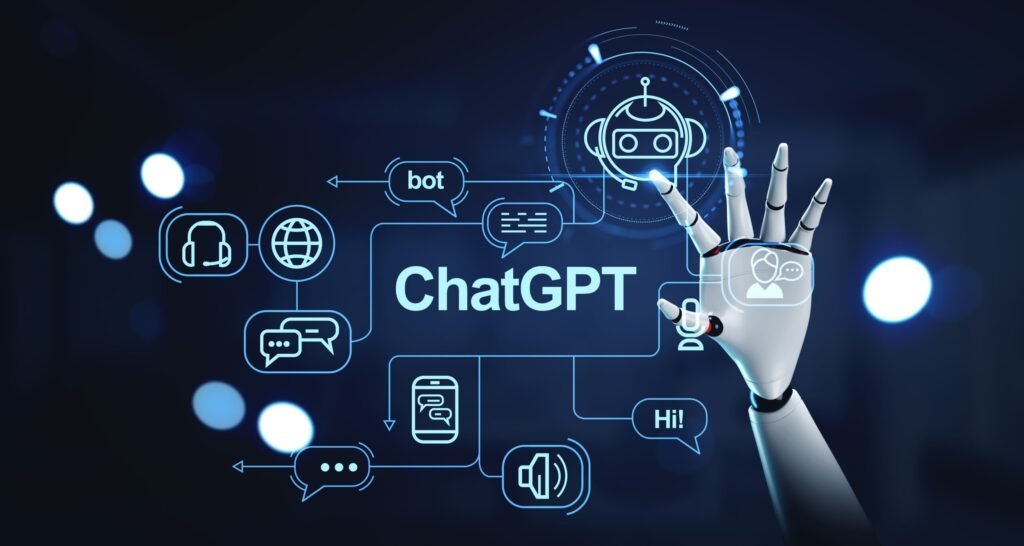Artificial intelligence (AI) has quickly become an integral part of modern life, with tools like ChatGPT widely used across industries for customer support, education, e-commerce, and even healthcare. However, one of the most debated topics in the UAE and globally is whether AI platforms such as ChatGPT should be giving medical or mental health advice. While these tools can provide instant responses and educational information, concerns about safety, regulation, and accountability are significant.
Interestingly, just as businesses rely on a Web Design Company Dubai for professional digital solutions, individuals increasingly rely on AI platforms for quick medical guidance. But the key question remains: Should AI be entrusted with something as sensitive as health?
The Growing Role of AI in Everyday Life
AI is reshaping industries worldwide. In the UAE, organizations in finance, education, healthcare, and technology are adopting AI to improve efficiency and customer experiences. From online shopping recommendations to advanced healthcare diagnostics, AI tools offer speed, scalability, and data-driven insights.
Similarly, in the business and digital landscape, companies look for experts in Web Design Dubai and Web Development Dubai to create platforms that deliver seamless customer journeys. Just like a well-designed website, AI-driven health solutions must focus on usability, accuracy, and trust.
Why People Turn to ChatGPT for Medical and Mental Health Advice
Several reasons explain why UAE residents and global users seek medical or psychological advice from AI tools like ChatGPT:
Instant Accessibility: Unlike traditional consultations that may take days or weeks, AI platforms respond in seconds.
Anonymity: Many users feel more comfortable sharing sensitive health or mental health concerns with a chatbot rather than a human professional.
Affordability: Professional consultations can be costly, whereas AI-driven answers are often free or included in subscription services.
General Knowledge: ChatGPT can provide simplified explanations, symptom overviews, and possible treatment directions based on existing medical literature.
However, just as not every web development Dubai company can guarantee flawless platforms, AI tools cannot guarantee medical accuracy, raising critical concerns.
Risks of Relying on ChatGPT for Medical Advice
While ChatGPT is a powerful language model, it has clear limitations when applied to healthcare. Some major risks include:
1. Lack of Professional Accountability
Unlike licensed doctors or therapists, AI has no certification or governing body ensuring that its advice is medically accurate or safe.
2. Possibility of Misinformation
AI-generated responses are based on patterns in existing data and may present outdated, incomplete, or even misleading information.
3. Over-Reliance on AI
There is a danger that people may skip professional medical consultations, depending solely on AI for diagnosis and treatment recommendations.
4. Mental Health Sensitivity
Mental health support requires empathy, personalized care, and nuanced understanding—qualities that current AI lacks. Misguided advice in this area can lead to severe consequences.
In comparison, when businesses hire a web design Dubai Company they expect accountability, revisions, and ongoing support—elements that AI in healthcare does not currently provide.
The UAE’s Approach to AI in Healthcare
The UAE has been proactive in adopting advanced technologies, including AI, across multiple sectors. In healthcare, the government has introduced initiatives to digitize medical services, telemedicine platforms, and smart hospitals.
However, regulators are cautious about unregulated AI usage in medicine. Guidelines emphasize that AI tools can assist doctors and patients but should not replace certified medical professionals. For example, while ChatGPT can suggest general wellness practices, only a licensed professional can prescribe treatment.
The UAE’s regulatory approach is similar to how businesses approach web development Dubai—with clear standards, compliance, and structured processes to ensure security and effectiveness.
The Case for AI in Healthcare (With Limitations)
Despite the risks, AI does have a role to play in healthcare if used responsibly. Potential benefits include:
Education and Awareness: ChatGPT can explain symptoms, medical conditions, and treatments in simplified language.
First-Line Support: AI can guide users on whether a symptom requires urgent medical attention.
Mental Health Check-Ins: Chatbots can offer preliminary support or resources for stress, anxiety, or depression while encouraging professional follow-up.
Efficiency for Healthcare Providers: Doctors can use AI to streamline administrative tasks, freeing up more time for patient care.
This approach is much like hiring a web design company Dubai—AI can create the framework, but professionals must handle the critical details.
Ethical and Regulatory Concerns
Several ethical questions surround the use of ChatGPT in healthcare:
Privacy & Data Security: Can users trust that their sensitive health data will remain confidential?
Liability: Who is responsible if AI-generated advice harms a patient?
Bias & Accuracy: AI systems may unintentionally reflect biases present in their training data.
Human Touch: Can empathy, compassion, and cultural sensitivity—so important in UAE society—be replaced by AI?
In the digital space, the same concerns apply to web development Dubai projects: data security, user trust, and compliance with regulations are critical. Healthcare, however, carries much higher stakes.
Should ChatGPT Be Allowed to Give Medical or Mental Health Advice?
The answer lies in balance. ChatGPT should not replace professional doctors, psychologists, or therapists. Instead, it should act as:
A support tool for general information.
A guide that encourages patients to seek professional help.
An educational resource to make medical knowledge more accessible.
Just as businesses rely on a web design company Dubai to design, build, and maintain websites—but not to run entire businesses independently—AI in healthcare should serve as an assistant, not a substitute.
Conclusion
The UAE is at the forefront of adopting AI technologies, but the use of ChatGPT in healthcare raises important questions. While it can provide quick, affordable, and anonymous information, the risks of misinformation, lack of accountability, and absence of human empathy make it unsuitable as a standalone medical advisor.
Instead, ChatGPT should be viewed as a supportive tool—helpful for awareness and first-line guidance but always paired with professional medical consultation.
// Request a Quote
Stay Connected, Flow with Us.
We’d love to hear from you! Whether you have a question, feedback, or need assistance, our team is here to help. Reach out today, and let’s connect!